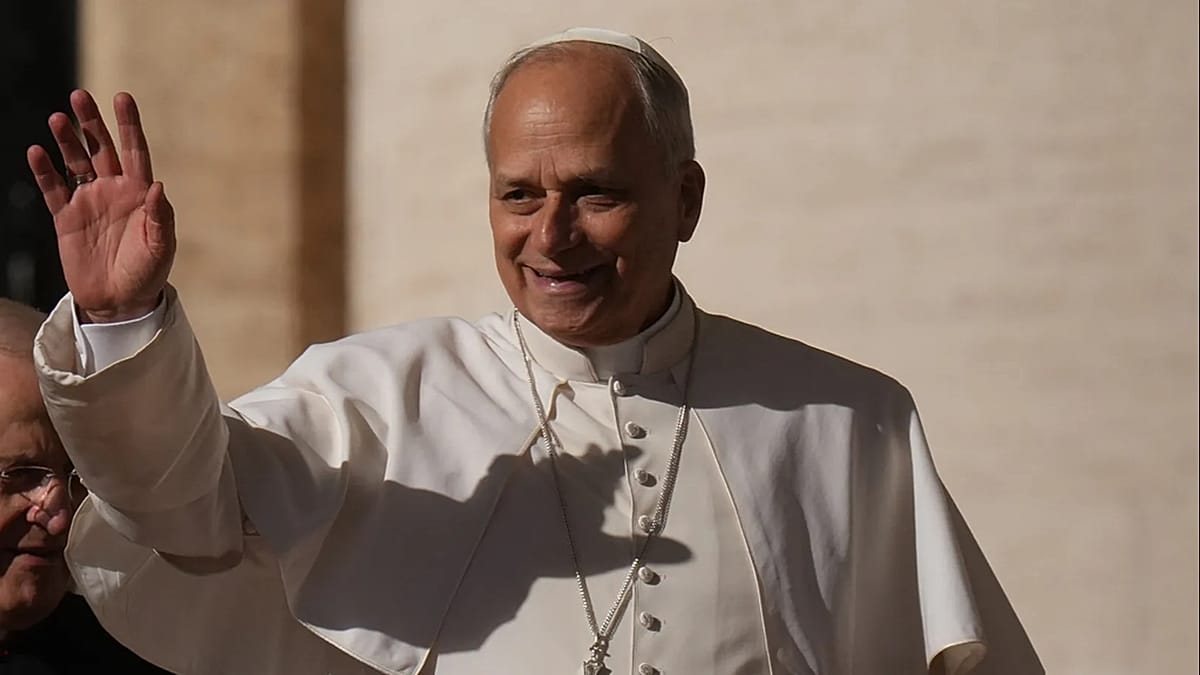Pope Leo XIV received a host of Hollywood celebrities on Saturday, underscoring the role of cinema for marginalised communities and voices.
“It comforts me to think that cinema is not just ‘moving pictures’; it is putting hope in motion,” Leo said.
“One of the most precious contributions of the cinema is precisely that of helping the spectator to return to himself, to look with new eyes at the complexity of his own experience, to see the world again as if for the first time, and to rediscover, in this exercise, a portion of that hope without which our existence is not full,” the Pontiff stressed.
Describing film as “a popular art in the noblest sense, intended for and accessible to all,” Leo urged the celebrities and filmmakers assembled in a frescoed Vatican audience hall to utilise their medium to include marginal voices.
According to a Vatican statement, “The Pontiff expressed his desire to deepen dialogue with the world of cinema and in particular with actors and directors, exploring the possibilities that artistic creativity offers to the mission of the Church and the promotion of human values.”
Leo, 70, the first American pope, was presented with an NBA Knicks team jersey with the words ‘Pope Leo’ and the number 14 by Hollywood director Spike Lee, while Cate Blanchett gifted the Pontiff a bracelet.
Ahead of Saturday’s visit, the Pope had shared some four of his favourite films: “It’s a Wonderful Life,” “The Sound of Music,” “Ordinary People,” and “Life Is Beautiful.”.
The visiting film stars included Spike Lee, Cate Blanchett, Monica Bellucci, Marco Bellocchio, Stefania Sandrelli, and Greta Gerwig.
Pope: ‘Cinemas and theatres are beating hearts
According to the Pope, cinema must not be afraid of confronting the wounds of the world. “Violence, poverty, exile, loneliness, addictions, and forgotten wars are wounds that ask to be seen and told,” he told those present in the Clementine Hall.
“Great cinema does not exploit pain: it accompanies it, investigates it. This is what all great directors have done.
Giving voice to the complex, contradictory, sometimes obscure feelings that dwell in the heart of the human being is an act of love,” Prevost went on to emphasise, recalling that “the cinema, without being didactic, has within itself, in its authentically artistic forms, the possibility of educating the gaze.”
The Pope then thanked all the figures of the cinema, not only actors and directors, but also cameramen, assistants, sound engineers, make-up artists, costume designers, trying to mention them all and apologising for those not remembered.
“May your cinema always remain a meeting place, a home for those seeking meaning, and a language of peace. May it never lose the capacity to amaze, continuing to show us even a single fragment of the mystery of God,” the Pope said.
He then warned them against what he called “the logic of the algorithm, which tends to repeat what ‘works,’ but art opens to what is possible.”
“Not everything has to be immediate or predictable: defend slowness when it serves, silence when it speaks, and difference when it provokes. Beauty is not only evasion but, above all, invocation,’ he added.
The Pope: ‘We need witnesses of hope.’
In a sign of how seemingly star-struck he was, the Chicago-born Leo spent nearly an hour after the audience greeting chatting amiably with each of the participants, something he rarely does for large audiences.
Drawing applause from the celebrities, Leo acknowledged that the film industry and cinemas around the world were experiencing a decline, with theatres that had once been important social and cultural meeting points disappearing from neighbourhoods.
“I urge institutions not to give up, but to cooperate in affirming the social and cultural value” of movie theatres, he said.
Many celebrities said they found Leo’s words inspiring and expressed awe as they walked through the halls of the Vatican Apostolic Palace, where a luncheon reception awaited them after the audience.
The encounter, organised by the Vatican’s culture ministry, follows on from similar audiences Pope Francis had in recent years with artists and comedians and forms part of the Vatican’s efforts to reach out beyond the Catholic Church to engage with the secular world.

